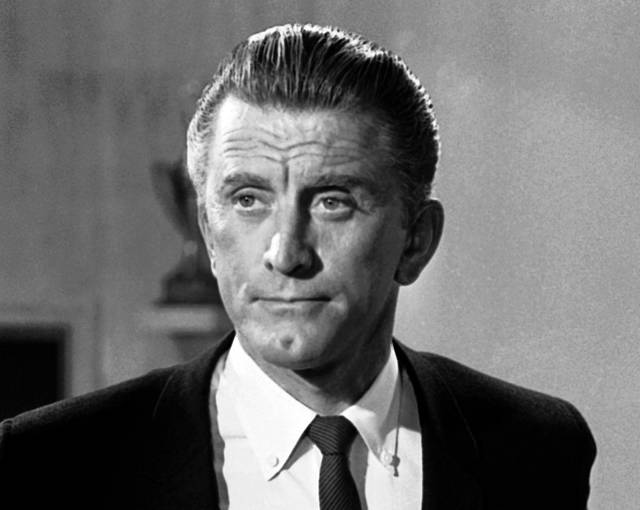Any time a movie star dies, we tend to remember them for the fictional roles they played, with little time spent on their real lives. When Kirk Douglas died last week at 103, it was easy enough to think of him as he was in the movies.
But Douglas did his best work when he stood up for Dalton Trumbo, a blacklisted screenwriter who was accused of being a communist in the late 1940s. Trumbo was part of the Hollywood Ten, a group of movie industry artists who went to prison for contempt of Congress during the post-World War II Red Scare.
After prison, they faced a familiar drill for anyone facing public scorn. So-called friends abandoned them, their calls went answered and unreturned, and people who owed them suddenly forgot their names. Some lives just fell apart, but Trumbo and a few others started working under pseudonyms.
Douglas thought that was unfair, so when he was in a position to make a difference, he did something that we do not see enough of these days. He stood up for what was right, in spite of the personal peril.
When he became the executive producer of “Spartacus,” Douglas hired Trumbo to write the screenplay. And he used Trumbo’s actual name in the credits when it was released in 1960. He was warned that he could be run out of the business for his honesty, but he hated the hypocrisy of it all and refused to play along.
As Douglas told NPR’s Terry Gross in 1988, “I said no, to hell with it. I’m going to do it.”
Gossip columnist Hedda Hopper, who was the queen of mean then, could ruin lives with one line in her poisonous column. An original promoter of the Hollywood blacklist, she saw herself as the guardian of public morals. And she went after Douglas for giving Trumbo his name back, pitching her 35 million readers to punish him.
Hopper wrote in her column that the “Spartacus” script “was written by a commie, so don’t go see it.” But “Spartacus” was a huge hit in spite of her vindictive plea.
Around that time, others began to speak out, too, from all walks of life. And when President John F. Kennedy went to see “Spartacus” at a neighborhood theater, even though the American Legion had protested Trumbo’s role in the film, the blacklist was finally buried.
The country had gone a little crazy in those days. Fear caused friends to turn on each other. Simple kindnesses fell away. And those who stepped forward with reason and truth were targeted and pilloried.
Some people liked it that way, and it went on as long as it did because careers were built on fear, and fear gave them political power and made them fortunes. Hopper lived in a Beverly Hills mansion that she called “the house that fear built,” because she recognized the key to her success.
There is some of that going around now. But the lesson from Kirk Douglas and “Spartacus” is that people who speak up and stand up can dissolve the fear and strip it of its power.








